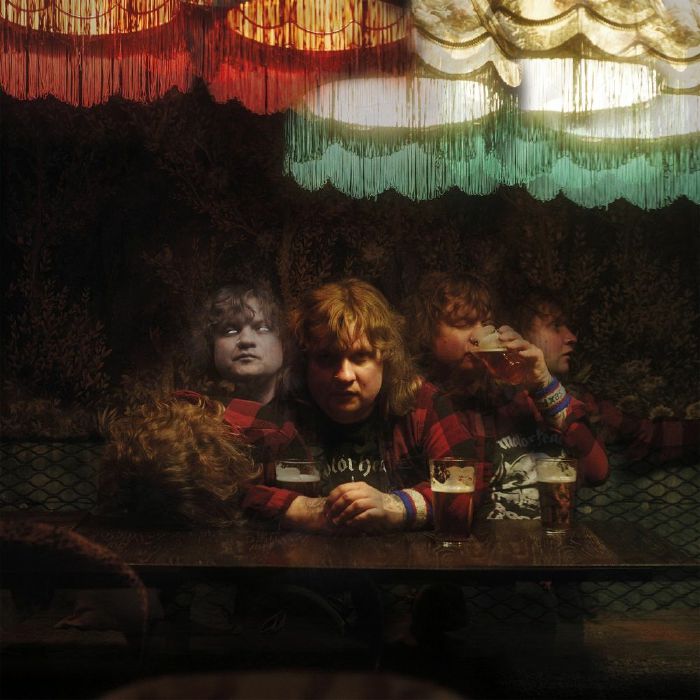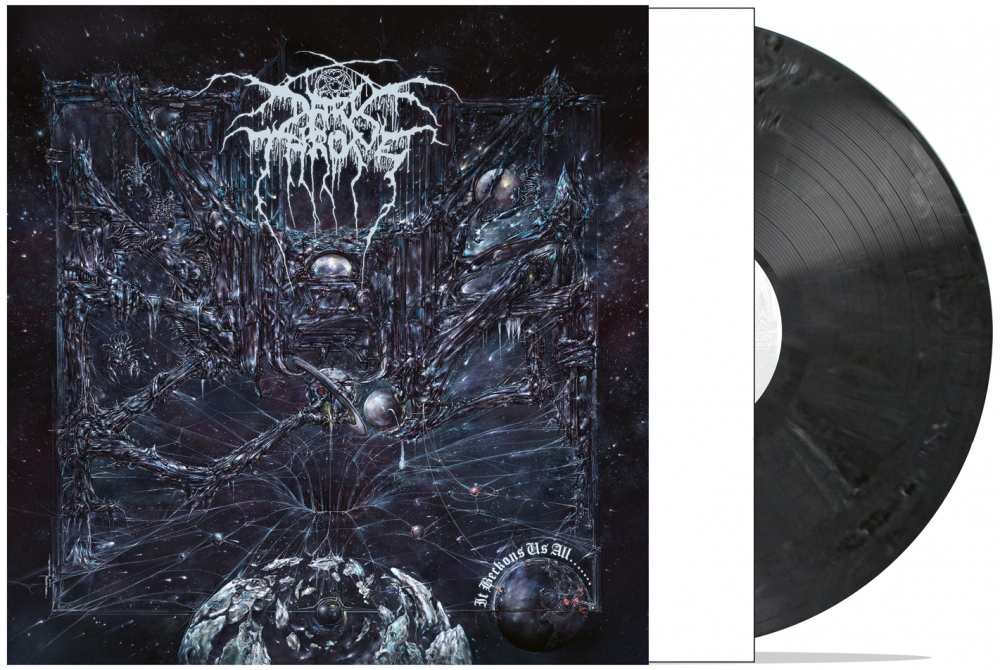As a fan of both Opeth and progressive music it has been interesting observing the band’s shift away from death metal towards full-blown progressive rock. Over the years, frontman Mikael Akerfeldt has made no secret of his love for bands such as Yes, Camel and King Crimson and it is to these influences that he has now fully turned, eschewing the band’s early brutality for a full-on love letter to the progressive masters of the seventies. The result is not without satisfying moments but it does beg two questions – to what extent should Mikael still be presenting this music under the Opeth banner, given how far they have moved away from their roots, and to what extent can music so entirely rooted in the achievements of the past be genuinely considered ‘progressive’. The latter point is, perhaps, of the most concern for what we can see in ‘Pale Communion’ (and to a large extent the same is true of ‘Heritage’) is an artist less in thrall to the creative process than to a genre, with the result that much of what you’ll hear on the album echoes strongly the well-established stylistic tropes of Mikael’s heroes whilst adding little to the mix. That Opeth will also be criticised for turning their collective back on metal is a moot point – Opeth have moved on and if you listen to the band only for the harsh screams and heavy riffs that predominate their early period then clearly ‘pale communion’ will not be for you – but in relying so heavily on what has gone before ‘pale communion’ sounds more like a tribute to the past than an evolutionary step forward for a creative and intelligent band. This is not to say that it is a terrible record – far from it – but in moving Opeth away from being a metal band with a progressive element, Mikael has risked removing those facets that made Opeth so unique in the first place.
Opening with ‘eternal rains will come’, ‘pale communion’ begins with a typically complex piece of music anchored, as ever, by Martin Axenrot whose solid, jazz-infused performance frequently proves to be the album’s high point. The sound is both typically Opeth and typically progressive, the chord structures and rich keyboards (Joakim Svalberg) evoking King Crimson’s ground breaking ‘in the court of the crimson king’, yet for all the powerful musicianship it is a difficult song to love as it feels rather forced and it is arguably on the more forthright ‘cusp of eternity’ that ‘pale communion’ becomes a more enjoyable listen. With ethereal guitars arcing over a chugging riff and Mikael’s ghostly voice wreathed in echo, ‘cusp of eternity’ is a powerful and engaging song that plays to opeth’s strengths without over complicating matters. Things start to fall down, however, with ‘room above sun below’ which begins by engaging in typically Opeth-esque patterns dominated by the faux-choral voice of the Mellotron which washes over the song like smoke. The result is a song that is enjoyable enough but which never truly offers a hook with which to captivate the listener. A touch more bite, or a touch more unpredictability and the song would truly soar, but as much as it is a wonderful exercise in musicianship, it feels too staid, too content to sit within established patterns and it ends up being rather predictable, which is fatal when one considers the song’s ten minute run time. Despite that, Mikael’s vocal delivery is perhaps one of his strongest clean performances to date, his voice containing real grit and power as he strains at the leash, and it’s a shame that he and the band do not flex their musical muscles to the same extent. Similarly problematic is ‘Elysian woes’ which, with its gently rippling guitar, is the closest moment here to ‘damnation’ and while it’s a well-constructed piece of music, it slows the pace of the album a touch too far, offering little that is new or innovative, as if the band are resting far too much on their creative laurels when they should be exploring the hinterland they so often and so tantalisingly reach towards.
Things start to pick up after the rather disappointing start, however, and one of the album’s undoubted highlights is ‘Goblin’ which truly does see Mikael and his crew reach for the stars with a track that echoes the work of that enigmatic Italian band with which the song shares its name. An instrumental piece of work, ‘Goblin’ sees the band operating outside of their comfort zone and as a result it stands out in the memory much more than the previous two tracks. Another stylistic excursion for Opeth is ‘River’ which moves beyond the familiar minor key Mikael is so fond of and which instead employs the honeyed harmonies of Crosby, Stills and Nash. A rather lovely piece of music, it features some exquisite lead breaks (a feature far too often absent from ‘heritage’) and a warm tone that keeps you drawn in although it is hard to say that what you’re hearing is particularly original. The album wends its way towards its conclusion with two exceptionally strong numbers. A stunning high for the album, ‘voice of treason’ has an urgent pulse and vibrant percussive back drop, which is definitely the better for sounding far less like opeth than, say, ‘Elysian Woes’. The track benefits both from Mikael’s rich baritone (which remains remarkable throughout the album) and the band taking a far greater step into the unknown with the result that you feel yourself being drawn in deeply to Mikael’s progressive vision, wondering only why the whole album could not be so beautifully individual. Also very strong is the string-tinged ‘faith in others’, which is as beautiful a progressive ballad as you could possibly wish for and which simply needs to be heard to be truly appreciated. It rounds out the album well and helps to rescue the album from otherwise being a rather moderate effort.
Opeth remain a fine act but where the band’s progression from ‘blackwater park’ to ‘watershed’ via ‘ghost reveries’ saw them mark out a unique spot in metal for themselves, both ‘Heritage’ and ‘pale communion’ have seen the band largely retreat from innovation. In one sense ‘pale communion’ is an astounding progressive release – the musicianship is of the highest standard, the production (as one might expect from the redoubtable Steven Wilson) flawless – but what it lacks is the relentless drive to pursue the unknown that fired the bands that have so inspired Mikael. Where ‘in the court of the crimson king’ was an exploratory work of art, ‘pale communion’ too often comes across as a well-intentioned tribute with the added problem that the opening tracks are simply too strongly rooted in Opeth’s past material to fully engage the listener. That said there are plenty of fine moments to enjoy, particularly in the latter half of the album, and ultimately ‘pale communion’ is a record that feels like a bridge, as if Mikael was not quite confident enough to break from the stylistic hallmarks that have been consistently part of opeth for the last two decades. The result is a first half that feels safe and predictable when it should feel dangerously exotic and rife with innovation and it is only when the band abandon the safety of the familiar that the record starts to soar in the way that it should. That Opeth are fine musicians has never been in doubt, but if Opeth are to truly carve a niche for themselves in the progressive world then they need to abandon caution and emulate the vision, rather than the sound, of their heroes. ‘Pale Communion’ is a record that will undoubtedly satisfy Opeth fans who enjoy the band’s progressive output, but for the uninitiated there are better places to start exploring the work of this rather wonderful band.











Leave a Reply